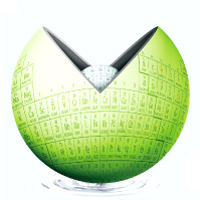
Published for geochemistry community from Geochemical Society of Japan.
A simple determination of whole-rock major- and trace-element composition for peridotite by micro-XRF spectrometer and ICP-MS using fused-glass bead
Geochemical Journal, Vol. 54, No. 2, P. 81-90, 2020
ABSTRACT
A simple analytical procedure for determination of whole-rock major- and trace-element composition by micro-X-ray fluorescence (μXRF) spectrometer and inductively coupled plasma-mass spectrometer (ICP-MS) using fused-glass bead (sample + lithium tetraborate) is presented. In the case of peridotites, chromian spinel (Cr-spinel) is one of the minerals resistant to acids and interferes with accurate and reproducible determination of whole-rock composition. Such resistant minerals were not observed in the fused-glass beads prepared here, suggesting complete digestion of the samples including Cr-spinels. The μXRF spectrometer was employed to determine SiO2, MgO, and total Fe2O3 contents with the fused-glass beads. They were subsequently dissolved into a nitric acid solution to analyze thirty seven elements, Na, Al, P, K, Ca, Sc, Ti, V, Cr, Mn, Co, Ni, Cu, Rb, Sr, Y, Zr, Nb, La, Ce, Pr, Nd, Sm, Eu, Gd, Tb, Dy, Ho, Er, Tm, Yb, Lu, Hf, Ta, Pb, Th, and U with sector magnetic field ICP-MS (ICP-SFMS) and Q-pole mass filter ICP-MS (ICP-QMS). The analytical procedures were optimized and evaluated with geological reference materials of JP-1 and BIR-1a, and applied to various mantle xenoliths (lherzolite, harzburgite, dunite, wehrlite, olivine clinopyroxenite, and orthopyroxenite) from Tahiti and Moorea islands (Society Archipelago). Since only fused-glass beads are required as an analytical target to determine whole-rock major- and trace-element compositions, the sample amount consumed through the series of analytical procedure can be constrained to a minute amount (e.g., <0.4 g). The analytical procedures presented here are considered appropriate for tiny and/or precious samples, such as mantle xenoliths and rocks collected by dredging, diving, and drilling from the world’s ocean basins.KEYWORDS
acid digestion, whole-rock composition, lithium tetraborate glass, mantle xenolith, Tahiti-Moorea islands- Published : 2020
- Released on J-STAGE : 2020/04/15
- Received : 2019/02/22
- Accepted : 2020/02/17
- DOI : https://doi.org/10.2343/geochemj.2.0587
- J-STAGE URL : https://www.jstage.jst.go.jp/article/geochemj/54/2/54_2.0587/_article/-char/ja
- J-Online ISSN: 1880-5973
- Print ISSN : 0016-7002
- ISSN-L : 0016-7002
All Issues
- Vol.59, 2025
- Vol.58, 2024
- Vol.57, 2023
- Vol.56, 2022
- Vol.55, 2021
- Vol.54, 2020
- Vol.53, 2019
- Vol.52, 2018
- Vol.51, 2017
- Vol.50, 2016
- Vol.49, 2015
- Vol.48, 2014
- Vol.47, 2013
- Vol.46, 2012
- Vol.45, 2011
- Vol.44, 2010
- Vol.43, 2009
- Vol.42, 2008
- Vol.41, 2007
- Vol.40, 2006
- Vol.39, 2005
- Vol.38, 2004
- Vol.37, 2003
- Vol.36, 2002
- Vol.35, 2001
- Vol.34, 2000
- Vol.33, 1999
- Vol.32, 1998
- Vol.31, 1997
- Vol.30, 1996
- Vol.29, 1995
- Vol.28, 1994
- Vol.27, 1993
- Vol.26, 1992
- Vol.25, 1991
- Vol.24, 1990
- Vol.23, 1989
- Vol.22, 1988
- Vol.21, 1987
- Vol.20, 1986
- Vol.19, 1985-1986
- Vol.18, 1984
- Vol.17, 1983
- Vol.16, 1982
- Vol.15, 1981
- Vol.14, 1980
- Vol.13, 1979
- Vol.12, 1978
- Vol.11, 1977
- Vol.10, 1976
- Vol.9, 1975
- Vol.8, 1974
- Vol.7, 1973
- Vol.6, 1972-1973
- Vol.5, 1971
- Vol.4, 1970-1971
- Vol.3, 1969-1970
- Vol.2, 1968
- Vol.1, 1966-1967
Current Issue:
Stats:
Impact Factor: 1.6 (2024)
Submission to final decision: 9.6 weeks (2022)




